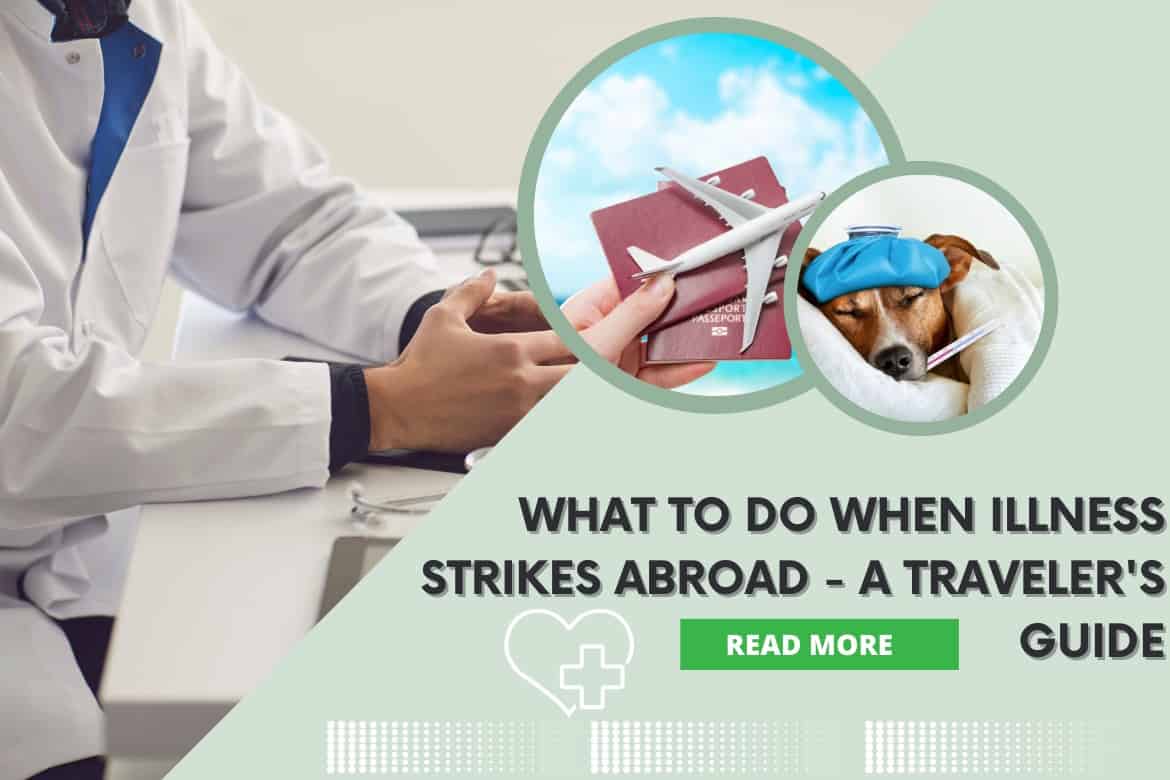The thrill of travel often lies in the unknown, in the experiences waiting just around the corner. However, this same unpredictability can introduce unforeseen health challenges, especially when you find yourself in unfamiliar territory. Although the prospect of getting sick while traveling is never pleasant to consider, being prepared for this scenario is crucial for anyone planning a trip. Here is a comprehensive guide from Remote Tribe to help you navigate the maze of healthcare concerns when illness strikes during your travels.
Minimize Your Exposure

Being vigilant about your proximity to others is a foundational step in minimizing your risk of falling ill while traveling. It’s not just those who are visibly sick that pose a risk; many illnesses can be contagious even before symptoms manifest. By maintaining a reasonable distance from others in crowded settings like airports and tourist attractions, you can significantly lower the chances of being exposed to pathogens.
Mask Up
In places where you’ll be exposed to crowds or reduced air quality, wearing a mask is advisable. This simple barrier can help protect against airborne particles and germs, potentially reducing your risk of respiratory infections. It’s a small but meaningful step to add an extra layer of protection.
Keep Digital Copies of Your Travel Documents

Digitizing your medical records into PDFs before you leave and saving them in the cloud is a prudent step towards ensuring that your vital health information is easily accessible, no matter where you are. By converting these crucial documents into a digital format and storing them securely online, you can access, share, and manage your medical history with unparalleled ease, providing peace of mind during travels or in case of an emergency. Furthermore, should you need to adjust how these documents are viewed for better readability or to meet specific requirements, you can utilize a PDF rotator to rotate the orientation of your PDF from portrait to landscape mode, and vice versa, enhancing the flexibility and utility of your digitized records.
Wash Your Hands
The importance of hand hygiene cannot be overstated. Make it a point to wash your hands regularly with soap and water. If that’s not possible, use an alcohol-based hand sanitizer. Pay particular attention to hand hygiene before eating and after using public transport or touching shared surfaces. This simple act can offer strong protection against a wide range of infectious diseases.
Ensure Your Phone Has Enough Juice
In emergency situations, a fully-charged smartphone with international roaming can be invaluable. It ensures immediate access to local emergency services and enables communication with your country’s diplomatic missions for support and guidance. Having key local contacts like hospitals pre-stored in your phone further enhances your preparedness for health-related contingencies.
Ensure Your Phone Has Enough Juice
In emergency situations, a fully-charged smartphone with international roaming can be invaluable. It ensures immediate access to local emergency services and enables communication with your country’s diplomatic missions for support and guidance. Having key local contacts like hospitals pre-stored in your phone further enhances your preparedness for health-related contingencies.
Consider Remote Work on the Road
If you’re traveling for business and fall ill, examine the feasibility of remote participation in your work commitments. Discuss the options with your superiors or team and make arrangements to fulfill your responsibilities from your accommodation. This limits your exposure to colleagues and allows you to prioritize your health without compromising on work obligations.
Prioritize Your Health Along with Comfort
Staying healthy and avoiding illnesses while traveling, especially for work, requires a proactive approach to your well-being. To maintain your health and fitness on the go, prioritize finding accommodations that offer fitness facilities, allowing you to keep up with your exercise routine even away from home. Opting to walk or bike to meetings not only gives you a chance to explore the area but also integrates physical activity into your busy schedule, helping you stay active.
Equally important is hydration; always carry water with you to ensure you’re well-hydrated, which is crucial for overall health and can aid in warding off travel-related fatigue and jet lag. By incorporating these habits into your travel routine, you can significantly reduce the risk of illness and maintain your fitness, making your work trips both productive and health-conscious.
Know Where the Nearest Pharmacy Is
It pays to know where the closest pharmacy is, particularly when you’re in a foreign country. This knowledge allows you to quickly obtain any over-the-counter medications or prescribed drugs you may need. It’s a straightforward yet significant advantage to have immediate access to a pharmacy should your condition require prompt intervention.
The allure of traveling is rooted in the joy of discovery, but it’s equally important to discover ways to protect your health during your journey. By adhering to these outlined recommendations, you can better prepare yourself for the unexpected twists and turns that come with travel. In essence, proactive healthcare measures can significantly influence the quality and safety of your trip, whether it’s for business or pleasure. Preparation and awareness are your best allies in ensuring that your travels are not just memorable but also safe and fulfilling.









